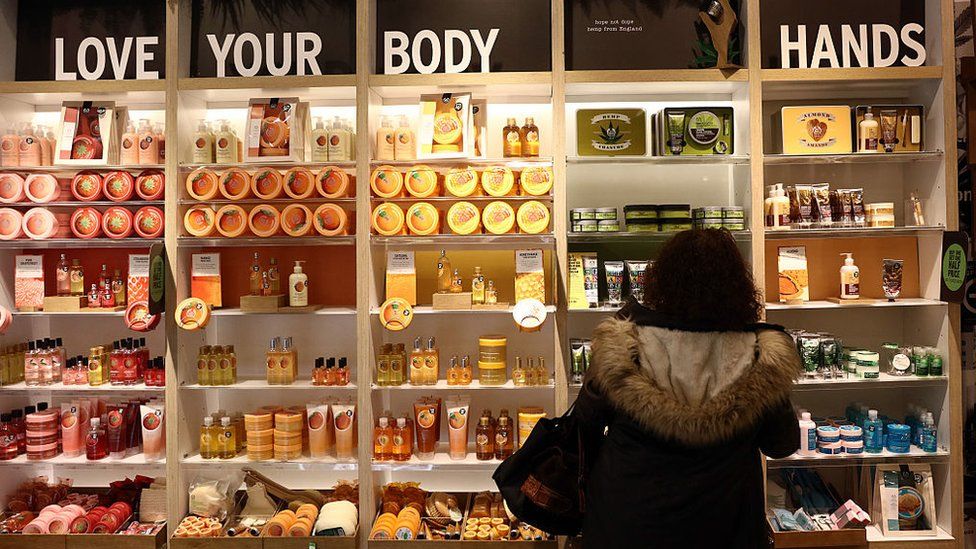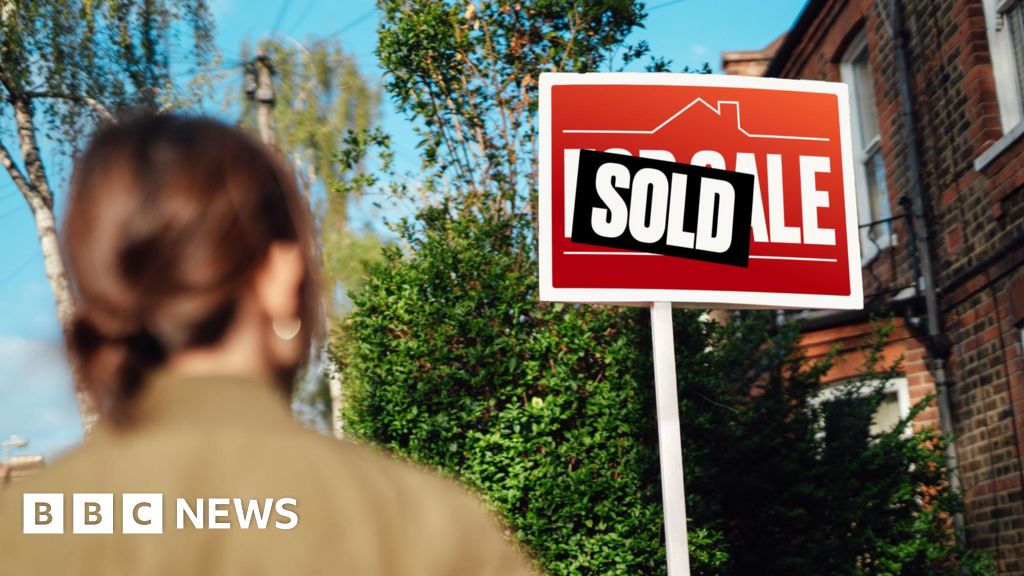ARTICLE AD BOX
 Image source, Getty Images
Image source, Getty Images
By Dearbail Jordan
Business reporter, BBC News
Once upon a time, there was a magical emporium called The Body Shop.
Inside you would find piles of colourful soaps, jars of shimmering bath pearls, rows upon rows of intriguing lotions and, if it was a Saturday, gaggles of teenagers spraying themselves silly with White Musk eau de toilet testers.
For children of the 1980s and 1990s, The Body Shop was a Willy Wonka-esque treat.
"When we were young, The Body Shop was the brand," remembered Diane Wehrle, retail expert and chief executive at Rendle Intelligence and Insights.
"But for younger people, it is now the brand of their mum."
The Body Shop of today is facing a crisis. Its new owner - the third in seven years - is expected to put the retailer's UK business into administration.
At this stage, it is a little too early to say what it will mean for The Body Shop's 200 stores in the UK but it is safe to assume many will have to close to cut costs, leading to job losses.
It is understood that Aurelius, the private equity firm that bought The Body Shop for £207m in November, took the drastic decision after poor sales during the all-important Christmas shopping season seeped into January.
It is also believed that The Body Shop's working capital was not as healthy as initially thought.
Some would argue, however, that this was a long time coming.
Once a trailblazer for championing ethical trading and cruelty-free beauty, The Body Shop appears to have stayed still as rivals in the natural, clean beauty space, such as Lush or Neal's Yard Remedies, have moved ahead.
Dame Anita Roddick 'soul' of Body Shop
Image source, Getty Images
Image caption,Dame Anita Roddick started The Body Shop from a single shop in Brighton in the 1970s
"It got bought out by L'Oreal," said retail consultant Mary Portas, referring to the 2006 deal when The Body Shop founder Dame Anita Roddick and her husband Gordon sold the business to the French cosmetics and beauty giant for more than £650m.
"L'Oreal knows how to use brands," she said: "It did not know how to run a retailer and so the soul went out of it."
The soul in The Body Shop's case was Dame Anita. according to Ms Portas.
She started the business from a single shop in Brighton in 1976, inspired by natural ingredients she had seen on her travels overseas, such as cocoa butter.
At the same time, Dame Anita inadvertently pioneered the practice of customers bringing back empty containers to be refilled in-store. "We recycled everything, " she once said. "Not because we were environmentally friendly but because we didn't have enough bottles."
Image source, Getty Images
Image caption,The Body Shop's body butters were once a cult favourite
By 1984, The Body Shop was phenomenally popular and listed its shares on the London Stock Exchange, valuing a company that was started for £4,000 at £80m.
"It was a mecca for joy and everything she stood for was what business should be today," said Ms Portas. "[Dame Anita] talked about business being a force for good and making progress and having an effect in the world."
When a customer shopped there "you bought into a value system which she stood for and you wanted to be part of her gang", said Ms Portas.
Until Dame Anita sold the business to L'Oreal, a beauty behemoth that appeared to some to be the antithesis of what The Body Shop was all about.
Dame Anita and her husband made around £130m from the sale and she pledged to give the money away. The following year, she died aged just 65 years old.
More than 10 years later, L'Oreal decided to sell The Body Shop to Natura of Brazil for £880m. Fast-forward to November 2023, and Natura offloaded it to Aurelia for a fraction of what it paid for it.
Image source, Getty Images
Image caption,The Body Shop branched out from toiletries to a full make-up range
As The Body Shop was being shunted between different owners, rivals with their own natural brands were emerging.
Ms Wehrle reckons: "I think what's happened over the past 20 years is a huge number of entrants have come into that sustainability, natural space that The Body Shop once solely occupied.
"The Body Shop itself hasn't really evolved its concepts but all its competitors have come up behind it and not only have the advantage of sustainability but some also have really beautiful branding," she said. "The Body Shop hasn't actually deteriorated but it hasn't moved."
Even walking into a Body Shop nowadays is not the sensory experience it once was. Ms Portas remembers: "The smell was a joy - that vanilla scent that wafted as you opened the doors to The Body Shop."
Compare that now to the olfactory punch of a Lush store and the colourful displays of its bath bombs loved by the TikTok generation. Or Rituals, which Ms Wehrle said, offers a "beautiful shopping environment with a whole host of scents and smells". It also uses so-called online influencers to promote the brand to younger shoppers.
Meanwhile, Boots and supermarket chains now offer natural and sustainable beauty ranges.
Image source, Getty Images
Image caption,The Body Shop has to compete with the colourful creations in rival store Lush
It is highly unlikely that The Body Shop will completely disappear. It may keep trading from some shops in the UK and use this opportunity to invest in the online side of the business.
There is certainly no doubt that millions of us have great affection for The Body Shop. But Ms Wehrle said: "Really, we're hankering after retailing from 20 years ago when there was no choice.
"Now there is a whole host of choice and we're as much to blame for that as well. But ultimately, it is the retailer that has to own that. They need to make it a current, must-have brand and they haven't done that. They just haven't."

 11 months ago
57
11 months ago
57








 English (US) ·
English (US) ·